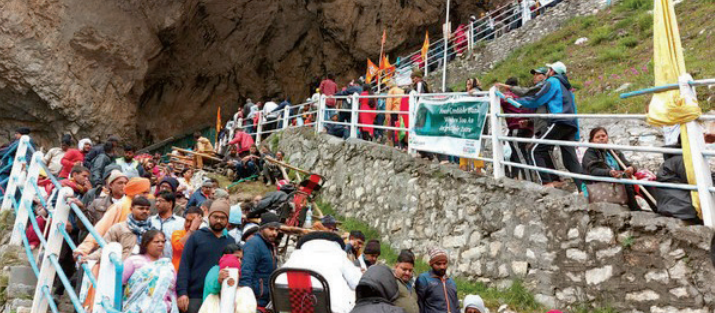In a major breakthrough for environmental management during the AmarnathYatra, the Department of Rural Sanitation, J&K, deployed high-capacity, state-of-the-art waste processing machines along the Baltal and Pahalgam routes to ensure timely handling of the massive waste generated during the pilgrimage.
For the first time, advanced technology was used at this scale to manage both solid and liquid waste, helping maintain the sanctity and sustainability of the yatra. Officials reported that over 300 tonnes of waste were generated at the Baltal and Chandwari axes alone and were processed efficiently.
More than 7,000 sanitation workers were mobilised to collect waste including food wrappers, plastic bottles, and leftover food from langars and pilgrims. The Dual Shaft Shredder significantly reduced the volume of plastic and paper waste by up to 60%, easing storage and transportation. The shredded waste was cleaner and easier to bale, facilitating quicker dispatch to recycling units and reducing contamination.
The SLS machine played a key role in separating organic waste into solid fractions suitable for composting or biofuel production, and liquid fractions that could be treated and reused for irrigation. This system cut wet waste volume by 70%, reduced odour, and improved composting efficiency.
Designed for 24/7 operation in challenging terrain, these industrial-grade machines marked a turning point in waste management during the Yatra. The official said, “The aim was clear, to avoid landfill creation and ensure a clean, eco-friendly pilgrimage.”
Sanitation staff at Baltal and Pahalgam reported faster and more efficient waste disposal, with mechanised systems reducing manual workload and keeping the sites visibly cleaner. This year, over 4.10 lakh pilgrims have completed the darshan, leaving behind prayers, not pollution.







